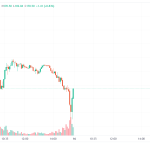Traders who succeed are those who not only develop their technical skills but also work through and master the psychological challenges that come with trading.
The Hidden Keys to Trading Success - Discipline and Emotional Mastery
The distinction between consistently successful traders and those who struggle often boils down to mental discipline rather than just technical or strategic knowledge. The traders who achieve long-term success often emphasize that their journey to consistency involved significant psychological growth. Here’s a closer look at how these aspects contribute to their success:
Absolutely, self-discipline, emotional control, and the ability to adapt one’s mindset are crucial psychological aspects of successful trading and investing. These factors often determine how effectively a person can implement their strategies and cope with the inevitable ups and downs of the market.
While news services, advisory services, and technical or fundamental trading systems provide valuable information and tools, the psychological component of trading is what truly drives decision-making and overall success. Here's a breakdown of how these psychological factors come into play:
- Self-Discipline: This is essential for following a trading plan and sticking to predetermined strategies without succumbing to impulsive decisions. It involves managing risk, adhering to stop-loss orders, and not letting emotions dictate trades.
- Emotional Control: Trading can be highly stressful and can provoke strong emotional reactions. Maintaining emotional control helps prevent panic selling during downturns or overconfidence during market highs. This balance is crucial for making rational, informed decisions.
- Adaptability: Being able to change one’s mind and adapt strategies based on new information or changing market conditions is vital. Rigidity can lead to missed opportunities or greater losses, while flexibility allows for more responsive and effective decision-making.
These psychological elements often overshadow the technical tools and external information sources in their impact on trading performance. Developing strong mental habits and self-awareness can lead to better implementation of strategies and more consistent success in the markets.
The path to becoming a successful trader is rarely smooth, and the emotional journey is a significant part of the process. Many traders, regardless of their eventual success or failure, face a series of common psychological hurdles early in their careers. Here’s a breakdown of those experiences and the transformative journey.
Common Experiences Among Traders
- Confusion: When starting out, many traders feel overwhelmed by the complexity of the markets, the multitude of trading strategies, and the sheer volume of information. This confusion can stem from not fully understanding how different factors impact the markets or from conflicting advice.
- Frustration: As traders begin to apply their strategies, they often encounter setbacks and losses. This frustration is exacerbated when results don’t match expectations or when initial success proves to be short-lived.
- Anxiety: Trading involves financial risk, and the uncertainty associated with market movements can lead to significant anxiety. This stress can be particularly intense during periods of high volatility or when traders face consecutive losses.
- Pain of Failure: Losing trades or experiencing a drawdown can be painful and demoralizing. This pain can be amplified by the pressure of financial loss, self-doubt, and the fear of not achieving one's goals.
The Journey to Success
1. Confronting Psychological Issues: To move past these early challenges, traders must confront and address various psychological issues. This often involves:
- Self-Awareness: Recognizing and understanding one’s emotional responses to trading outcomes. Self-awareness helps in identifying how emotions impact trading decisions.
- Acceptance: Accepting that losses are a natural part of trading and that they offer valuable lessons. This acceptance helps in mitigating fear and frustration.
- Resilience: Building the resilience to bounce back from losses and maintain focus on long-term goals. Resilience involves developing a growth mindset and seeing challenges as opportunities for improvement.
2. Developing Mental Discipline: The process of overcoming these challenges typically involves developing mental discipline. This includes:
- Consistency: Sticking to a well-defined trading plan and risk management rules despite emotional ups and downs.
- Emotional Regulation: Learning techniques to manage stress and maintain calm, such as mindfulness or cognitive behavioural strategies.
- Adaptation: Being willing to adapt strategies and approaches based on experience and changing market conditions.
3. Ongoing Learning and Growth: Even after overcoming initial hurdles, successful traders continue to learn and grow. They reflect on their experiences, refine their strategies, and adapt to new market conditions. This continuous improvement is a hallmark of long-term success.
4. Time and Experience: As you noted, this process takes time. It often requires several years of experience to fully grasp and integrate these psychological lessons. The best traders are those who persist through the difficulties and use their experiences to develop a more profound understanding of themselves and the markets.
Conclusion
Overall, the journey from a novice to a successful trader involves significant psychological growth. The traders who succeed are those who not only develop their technical skills but also work through and master the psychological challenges that come with trading.
Leave a comment
Your email address will not be published. Required fields are marked *



